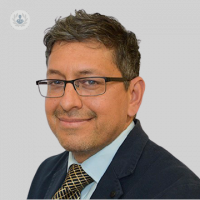Understanding parathyroid surgery: A guide to procedure, benefits, and recovery
Written in association with:Parathyroid surgery, also known as parathyroidectomy, is a procedure performed to remove one or more abnormal parathyroid glands. These small glands, located behind the thyroid in the neck, regulate calcium levels in the body through the production of parathyroid hormone (PTH). When they become overactive due to conditions such as primary hyperparathyroidism, they can cause an imbalance in calcium levels, leading to symptoms like fatigue, kidney stones, osteoporosis, and muscle weakness.

The primary indication for parathyroid surgery is hyperparathyroidism, a condition where one or more of the parathyroid glands produce excessive PTH, resulting in high calcium levels in the blood. This can be caused by benign tumors (adenomas), gland enlargement (hyperplasia), or, in rare cases, cancer.
The surgical procedure involves locating and removing the affected gland(s) while preserving the function of the remaining normal glands. Minimally invasive parathyroidectomy (MIP) or targeted parathyroidectomy are the preferred approaches for most patients, requiring only a small incision and guided by imaging techniques such as ultrasound and sestamibi scans. Traditional open surgery may be necessary in cases involving multiple gland abnormalities or difficulty in locating the affected glands.
Parathyroid surgery offers significant benefits, particularly in alleviating symptoms and preventing complications related to prolonged high calcium levels. Most patients experience rapid improvement in energy levels, cognitive function, and bone health following surgery. The procedure has a high success rate, with minimal risks when performed by an experienced surgeon. Potential complications, though rare, include damage to the vocal cords (voice change or scar tissue) and temporary low calcium levels, which can be managed with supplements.
Recovery from parathyroid surgery is generally quick, with most patients resuming normal activities within a few days. Mild discomfort, swelling, and a sore throat are common in the immediate postoperative period but usually subside within a week.
Patients are advised to stay hydrated, take prescribed calcium supplements if needed, and attend follow-up appointments to monitor calcium levels. With proper surgical care and recovery management, parathyroid surgery offers a safe and effective solution for restoring calcium balance and improving overall health.


